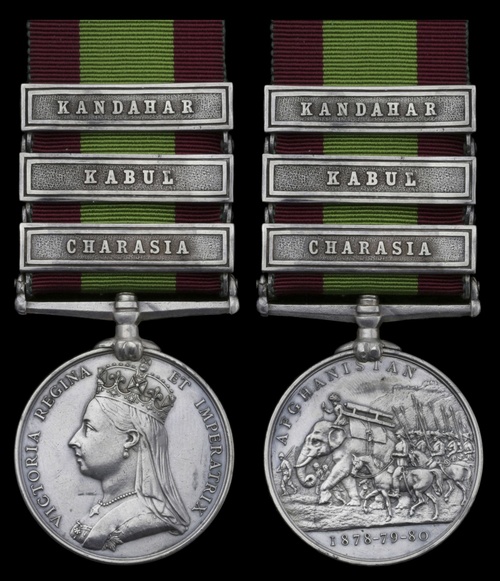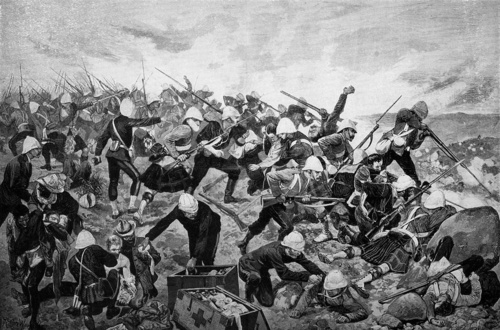Auction: 20002 - Orders, Decorations, Medals & Space Exploration
Lot: 88
(x) The Afghanistan War Medal awarded to Private J. McArthur, 92nd (Gordon Highlanders) Regiment, who was later Killed in Action during the First Boer War at the disastrous action on Majuba Hill
Afghanistan 1878-80, 3 clasps, Charasia, Kabul, Kandahar (2087. Pte. J. Mc.Arthur. 92nd. Highrs), nearly extremely fine
James McArthur, a native of Lanarkshire, served with the 92nd Highlanders throughout the Second Afghan War and was present at their main engagements between 1878-80. Upon leaving Afghanistan the 92nd Highlanders proceeded to South Africa to take part in the First Boer War. It was here on 27 February 1881 that the regiment suffered one of the 'most humiliating defeats of British arms in history' (The Anglo-Dutch Wars of the 17th Century, refers), recording 33 men killed in action and 63 wounded, of whom, a further 11 later died from their injuries.
The Battle of Majuba Hill
From daybreak, three Boer storming groups of 100-200 men apiece began a slow advance up Majuba Hill led by Field Cornet Stephanus Roos, Commandant D. J. K. Malan and Commandant Joachim Ferreira. In response 'the 92nd Gordon Highlanders began to yell and shake their fists' (Diamonds, Gold and War, refers), but the Boers, being better marksmen, kept their enemy on the slopes at bay whilst groups separated off to attack Gordon's Knoll.
At 12.45hrs, Ferreira's men opened up a tremendous fire upon the exposed knoll and captured it. Over the next hour, the enemy 'poured over the top of the British line and engaged the enemy at long range, refusing close combat action, and picking off the British soldiers one-by-one' (Victorian Colonial Warfare- Africa, refers). Taking advantage of the scrub and high grass covering the hill - something the British were not trained to do - the Boers unleashed volley upon volley into the 141 men of the 92nd Highlanders, 171 men of the 58th Regiment and the small band of Bluejackets fromDido. Without Artillery with which to respond, British discipline began to wane, and panicking troops began to desert their posts, unable to see their opponents and being given very little in the way of direction from officers (ibid). As further Boer reinforcements were seen from above circling the hill, the British line collapsed and many attempted to flee pell-mell from the battlefield:
'The Gordons held their ground the longest, but once they were broken the battle was over.'
Despite an attempted fighting retreat and an abortive rearguard action staged by the 15th Hussars and 60th Rifles who had marched in support from Mount Prospect, the final states proved little short of a rout, resulting in the death of Major General Sir George Pomeroy Colley, in command:
'Several wounded soldiers soon found themselves surrounded by Boer soldiers and gave their accounts of what they saw; many Boers were young farm boys armed with rifles. This revelation proved to be a major blow to British prestige and Britain's negotiating position, for professionally trained soldiers to have been defeated by young farmboys led by a smattering of old soldiers' (Queen Victoria's Little Wars, refers).
Sold with copied research and roll entry.
Subject to 5% tax on Hammer Price in addition to 20% VAT on Buyer’s Premium.
Sold for
£1,600
Starting price
£400







